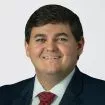- within Strategy topic(s)
Key Cases
Free Exercise
Fired Pastor's Ousting During Church Service Did Not Violate His Free Exercise Rights
Anthony J. Sirven
In Couzens v. City of Forest Park, Ohio, 114 F.4th 571, 574 (6th Cir. 2024), church leaders hired off-duty municipal police officers to attend a service and help oust a pastor whom members had voted to remove due to indiscretions. The pastor refused to comply, whereupon the off-duty police officers went into action. The pastor sued the city for allegedly violating his free exercise rights. The district court dismissed the pastor's claims on summary judgment, holding that the off-duty officers' ousting of the pastor did not target "religious conduct." The court of appeals agreed that the officers did not violate the pastor's free exercise rights and explained, "The officers attempted to enforce what, from their perspective appeared to be a settled matter."
Antidiscrimination Measures Adopted During Pendency of Case Striking Sectarian School Exclusion Upheld
Nathan A. Adams IV
In St. Dominic Acad. v. Makin, No. 2:23-cv-00246-JAW, 2024 WL 3718386 (D.Me. Aug. 8, 2024), a district court considered the applicability of amendments to the Maine Human Rights Act's (MHRA) educational and employment antidiscrimination provisions adopted while the U.S. Supreme Court's decision in Carson v. Makin, 596 U.S. 767 (2022) was pending. In Carson, the U.S. Supreme Court ruled that Maine's exclusion of sectarian schools from its tuition program violates the Free Exercise Clause. The decision came down on June 21, 2023. Effective Oct. 18, 2021, the MHRA added gender identity, religion, ancestry and color as protected classes and narrowed the religion exception to state that "[n]othing in this section … requires a religious corporation, association or society that does not receive public funding to comply with this section as it relates to sexual orientation or gender identity." The plaintiffs argued that the amendment was an attempt to keep religious schools out of the tuition program in the absence of the sectarian exclusion invalidated in Carson. After rejecting the defendants' arguments against reaching the merits on abstention and ripeness grounds, the district court rejected the plaintiffs' argument. The court did not credit the timing of the amendment, a few individual lawmaker statements or a law professor's boast that the state found an end-round Carson. The court decided that the educational antidiscrimination provisions do not violate the Free Exercise Clause because, despite not being generally applicable, they are neutral and satisfy strict scrutiny. According to the district court, neither do those provisions violate the Free Speech Clause because the educational antidiscrimination provisions do not compel speech and do not invite excessive entanglement with religion. In addition, the court decided that an injunction against employment antidiscrimination provisions that the defendants read as limited to co-religionists was unnecessary because the plaintiffs' proposed injunction would reach only conduct already protected by the plain text of the law. According to the court, MHRA protects the plaintiff's ability "to limit employment to individuals who conform with the Catholic faith."
Court Strikes State's Constitutional Prohibition Against "Incorporation of Religious Denominations"
Anthony J. Sirven
In Hope Community Church v. Warner, No. 3:23-CV-231, 2024 WL 4310866 (N.D.W. Va. Sept. 26, 2024), a local church challenged as a violation of its Free Exercise Clause rights a provision in West Virginia's Constitution that prohibited the state from "grant[ing] to any church or religious denomination" any "charter of incorporation." Id. at *1 (quoting W. Va. Const. art. VI, § 47). In his briefing, West Virginia's secretary of state conceded the constitutional provision "treats differently" entities formed "for commercial purposes" from those formed "for religious purposes." Id. Accordingly, the district court concluded that the "prohibition on the incorporation of churches is neither neutral nor generally applicable because it denies incorporation to a defined class of individuals solely based upon their religion." Furthermore, the court ruled, "the Court's inquiry turns to whether the challenged provision can survive strict scrutiny," which it further stressed would be true "only in rare cases." Ultimately, the court concluded "this is not one of those rare cases," observing the state failed to advance "any governmental interest, much less a compelling one" (emphasis original) for its differing treatment of churches and other religious institutions.
Religious Mentoring Organization Granted Injunction Against Cancellation of Grant
Nathan A. Adams IV
In Youth 71Five Ministries v. Williams, No. 24-4101, 2024 WL 3749842 (9th Cir. Aug. 8, 2024), Oregon canceled a grant awarded to the plaintiff, a Christian organization that serves and mentors at-risk youths of all backgrounds, after the state learned that the organization hires only those who share its faith. In March 2023, Oregon added a new eligibility requirement to the Oregon's Youth Community Investment Grant Program, referred to by the court as the "Certification Rule." The Certification Rule requires a grant applicant to certify that it "does not discriminate in its employment practices, vendor selection, subcontracting, or service delivery with regard to race, ethnicity, religion, age, political affiliation, gender, disability, sexual orientation, national origin, or citizenship status." This was the first time that Oregon required such a certification. The plaintiff applied for grants in 2023 and was conditionally awarded grants for the 2023-2025 cycle, but after Oregon received an anonymous tip complaining about the plaintiff's hiring practices, the state rescinded the grants for violating the Certification Rule. The court of appeals reversed the district court's denial of the plaintiff's motion for preliminary injunction based on the Free Exercise Clause. The court determined that the plaintiff is likely to succeed on the merits because the government must grant secular and religious groups equally, but Oregon has not applied its nondiscrimination policy neutrally, as it continues to fund secular organizations that favor certain groups based on race and gender identification in violation of the same antidiscrimination policy on which Oregon relied in denying funding to the plaintiff. Oregon did not contend that its actions survive strict scrutiny. Regardless, the court concluded that the Certification Rule is not narrowly tailored to serve its asserted interests.
Federal Court Asks Texas Supreme Court Whether the Religious Service Protections Provision in the State Constitution Is Categorical
Nathan A. Adams IV
In Perez v. City of San Antonio, 115 F. 4th 422 (5th Cir. 2024), members of a Native American church sued, alleging that the city's development plan for Brackenridge Park prevented them from performing ceremonies essential to their religious practice, in violation of the Free Exercise Clause, Texas Religious Freedom Restoration Act (TRFRA) and Texas Constitution. The court of appeals certified to the Supreme Court of Texas the question whether the religious service protections provision of the Texas Constitution, Tex. Const. art. I, § 6-a, imposes a categorical bar on any limitation of any religious service regardless of the type and the government's interest in that limitation or whether it invokes a strict scrutiny inquiry. The provision prohibits the state and its political subdivisions from enacting, adopting or issuing "a statute, order, proclamation, decision or rule that prohibits or limits religious services conducted in churches, congregations, and places of worship – by a religious organization established to support and serve the propagation of a sincerely held religious belief."
Free Speech
Challenger to Law Prohibiting Sexual Orientation "Conversion Therapy" Denied Injunction
Nathan A. Adams IV
In Chiles v. Salazar, Nos. 22-1445 & 23-1002, 2024 WL 4157902 (10th Cir. Sept. 12, 2024), the court of appeals ruled 2-1 that the plaintiff did not show a likelihood of success as necessary for an injunction against Colorado's Minor Conversion Therapy Law (MCTL), prohibiting licensed mental health professionals from providing "conversion therapy" to change minors' sexual orientation or gender identity. The plaintiff is a licensed professional counselor who argued that MCTL violates the Free Speech and Free Exercise Clauses. Her clients "believe their faith and their relationships with God supersede romantic attractions and that God determines their identity according to what He has revealed in the Bible rather than their attractions or perceptions determining their identity." She "does not seek to 'cure' clients of same-sex attractions or to 'change' clients' sexual orientation; she seeks only to assist clients with their stated desires and objectives in counseling, which sometimes includes clients seeking to reduce or eliminate unwanted sexual attractions, change sexual behaviors, or grow in the experience of harmony with one's physical body." The court ruled, as a matter of first impression, a standard lower than strict scrutiny applies in a free speech challenge to a law prohibiting licensed therapists from practicing conversion therapies on minors. According to the court, MCTL is regulation of professional conduct incidentally involving speech, and thus, strict scrutiny is not applicable. The court affirmed the district court's determination that the counselor did not show a likelihood of success on the merits of her free speech challenge using rational basis review. Furthermore, the court rejected her free exercise claim on the grounds MCTL is neutral toward religion and a law of general applicability. Dissenting, Judge Harris Hartz criticized the majority opinion for holding, "in essence, that speech by licensed professionals in the course of their professional practices is not speech, but conduct" and for "treat[ing] as 'science' the pronouncements of prestigious persons or organizations that are not supported by sound evidence."
RFRA
Washington, D.C., School Ordered to Reinstate Christian Student Group
Ross Hildabrand
In Fellowship of Christian Athletes v. District of Columbia, No. 24-CV-1332, 2024 WL 3400104 (D.D.C. July 11, 2024), the Fellowship of Christian Athletes (FCA) student group at a District of Columbia public school sought a preliminary injunction for reinstatement as an officially recognized student group. FCA has student groups at schools across the country and requires student leaders to agree with its statement of faith regarding religion, marriage, sex and sexuality. The school stopped recognizing FCA on its campus because it believed FCA's student leader requirement violated the school's antidiscrimination policy for student groups. FCA brought suit, and the district court granted a preliminary injunction after addressing FCA's Religious Freedom Restoration Act (RFRA) and Free Exercise Clause claims.
Under RFRA, the school's action created a substantial burden on the exercise of religion because the group was no longer able to officially recruit, use school spaces to meet, receive school funding or receive official recognition. On the other hand, the school could not demonstrate a strong enough interest to survive strict scrutiny since its antidiscrimination policy was "commendable" but "standardless," so FCA was likely to succeed on the merits of its RFRA claim. When analyzing the free exercise claim, which typically requires a rational basis review, the school's policy was not generally applicable. Other student groups discriminated based on race or gender, but those groups did not receive the same treatment as FCA. Without general applicability, strict scrutiny applies, causing the school to fall short in its defense, meaning FCA was likely to succeed on the merits of its free exercise claim as well. Beyond success on the merits, the other preliminary injunction factors also favored granting the injunction.
Public Accommodations Law
Organizations Have Standing for Pre-Enforcement Challenge to Michigan's ELCRA
Ross Hildabrand
In Christian Healthcare Centers, Inc. v. Nessel, Nos. 23-1769/1781/1860, 2024 WL 4249251 (6th Cir. Sept. 20, 2024), three religious organizations brought pre-enforcement challenges based on the constitutionality of Michigan's Elliot-Larsen Civil Rights Act (ELCRA) and Equal Accommodations Act (EAA). The complaint included causes of action based on alleged violations of the Free Exercise, Establishment, Free Speech and Assembly Clauses. The organizations – Christian Healthcare Centers, Sacred Heart of Jesus Parish and St. Joseph Parish in St. Johns, Michigan – claimed they would engage in a course of conduct "proscribed by the statutes" and that there was a "credible threat" of enforcement against them, which were the two elements at issue in this case to establish pre-enforcement standing. The district court disagreed, determining that the plaintiffs lacked standing and granting the defendants' motion to dismiss both the ELCRA and EAA challenges.
On appeal, the U.S. Court of Appeals for the Sixth Circuit reversed the district court concerning the Christian Healthcare Centers' and the Sacred Heart of Jesus Parish's standing to challenge the ELCRA. In making that determination, the court focused on both organizations requiring employees and job applicants to agree to statements regarding adherence to the organizations' views on religion, marriage and sexuality. Further, both organizations made clear that their services would not accommodate transgender individuals. Because these actions may be considered violations of the ELCRA that could be enforced by a member of the public or by the state, there was a credible threat of enforcement regarding conduct proscribed by the statute, which creates pre-enforcement standing. Alternatively, St. Joseph Parish lacked standing because its policies were not public-facing, and the parish had not faced enforcement in the past when the policies were public. Similarly, the court held the EAA challenges were correctly dismissed because there was no history of enforcement or fear of prosecution.
Photographer's Challenge to New York Public Accommodations Law Remanded
Nathan A. Adams IV
In Emilee Carpenter LLC v. James, 107 F. 4th 92 (2d Cir. 2024), the court of appeals considered the claims of a wedding photographer opposed to offering her wedding photography services to same-sex couples due to her sincerely held religious beliefs. The district court ruled against her challenge to New York's public accommodations law on all counts: Free Speech, Free Association, Free Exercise, and Establishment Clauses, as well as being overbroad and vague. After the district court ruled, the U.S. Supreme Court decided 303 Creative LLC v. Elenis, 600 U.S. 570 (2023). The court of appeals held that 303 Creative required reversal of the district court's ruling on the free speech claim, but the court of appeals remanded the case for factual development without issuing an injunction. Specifically, the court of appeals ruled that following 303 Creative, the district court must consider whether 1) the law at issue will compel a business owner to engage in activity she would not otherwise engage in and 2) that activity constitutes the owner's expressive activity. To determine whether services constitute expressive activity, courts must analyze whether the vendor creates a medium of expression or communicates an idea through the vendor's services or whether the vendor simply engages in predominantly non-expressive activity of a commercial nature. The court of appeals affirmed the district court on all other counts.
Ministerial Exception Doctrine
Ministerial Exception Applies to Bar Former Teacher's Claims of Racial Discrimination and Retaliation Against Catholic School
Peter Blumeyer
In Conseant v. St. Louis University High School, se No. 4:23 CV 1113 CDP Ca, 2024 WL 3551977 (E.D. Mo. July 15, 2024), plaintiff Yves Conseant worked as a French teacher at a Catholic high school. The school's Faculty and Staff Handbook expressly requires faculty members to "actively participate in effectuating the [school's] religious mission." Faculty are encouraged to attend masses, liturgies, class prayer services and formational activities like retreats. Conseant executed an employment contract in which he agreed to abide by the policies and procedures of the handbook. Faculty notes from observations made in his classes show that he involved his students in prayer and preparation for Mass during class. Based on the school's Catholic mission and Conseant's agreement to perform in accordance with that mission, the district court determined that he qualified as a minister for the purposes of the ministerial exception. As a result, the district court could not interfere with employment disputes between him and the school and therefore granted summary judgment in the school's favor. Thus, the district court did not address the merits of Conseant's employment discrimination claims.
Defendants' Request for Stay of Discovery Denied Where Plaintiff Claims Unlawful Termination Based on Sexual Orientation
Ryan Kocse
In Califano v. Roman Catholic Diocese of Rockville Centre, New York, No. 24-cv-04346 (AMD) (JMW), 2024 WL 4276170 (E.D.N.Y. Sept. 24, 2024), Michael Califano, a former teacher at Maria Regina School, initiated a lawsuit against the Roman Catholic Diocese of Rockville Centre, New York and others following his termination after a private social media post surfaced showing him kissing his same-sex partner. The plaintiff alleged a single claim of unlawful discrimination and wrongful termination in violation of Title VII of the Civil Rights Act of 1964 in the U.S. District Court for the Eastern District of New York. The defendants moved to stay discovery pending the briefing of a motion to dismiss, arguing that proceeding could be unnecessarily burdensome if the court ultimately dismissed the case. In considering the motion to stay discovery, the court emphasized that a stay is not warranted merely by the pendency of a dispositive motion. Instead, the moving party must demonstrate "good cause" for such a stay, considering factors such as the breadth of discovery sought, any resulting prejudice and the strength of the motion to dismiss.
The court denied the defendants' motion. In its decision, the court highlighted that the defendants did not sufficiently demonstrate that the plaintiff's claim lacked merit or that the anticipated motion to dismiss, premised on the fact-specific "ministerial exception" and church autonomy doctrine – both stemming from the Free Exercise Clause and Establishment Clause of the First Amendment – would likely dispose of the entire case. The court's analysis indicated that the defendants' arguments regarding the burden of discovery did not outweigh the need to proceed, particularly in light of the plaintiff's allegations and the relatively short duration of his employment. The court also considered the potential prejudice to the plaintiff from delaying discovery, especially given the plaintiff's request for reinstatement to his teaching position, which would be further delayed by a stay in discovery. Despite these conclusions, the court noted that its reasoning was limited to the evaluation of the defendants' request for a stay and did not constitute a prejudgment of the case's merits or a prediction of the outcome of the pending motion to dismiss.
ADA
Ministerial Exception Applies to Bar Former Apprentice-Employee's Disability Discrimination Claim Against Buddhist Temple
Peter Blumeyer
In Behrend v. San Francisco Zen Center, Inc., 108 F.4th 765 (9th Cir. 2024), plaintiff Alexander Behrend joined a Zen Buddhist temple as a work practice associate (WPA) after being involved in a car accident that left him with physical injuries and post-traumatic stress disorder (PTSD). The WPA position involved morning and evening meditations and services, temple cleanings, dharma talks, classes and a range of other events, together with tasks such as cooking and cleaning. Behrend was eventually assigned to a maintenance crew, which exacerbated his PTSD symptoms. After seeking accommodations, the temple decided to end his participation in the WPA program. Behrend sued for disability discrimination under the Americans with Disabilities Act (ADA). The district court granted summary judgment in favor of the temple on the grounds of the ministerial exception, and Behrend appealed.
The ministerial exception exempts a church's employment relationship with its "ministers" from the application of some employment statutes, even though the statutes by their literal terms would apply. Whether someone falls within the ministerial exception requires a court to take all relevant circumstances into account and determine whether a particular position implicates the exception's purposes. While Behrend argued that the exception should not apply because he performed mostly "menial work," the court found that such work is an essential component of Zen practice and that the WPA program is a foundation for Zen training. The court further rejected the argument that the exception is only designed to cover "those who are high up in a religious organization." Because Behrend's position involved carrying out the temple's religious mission, the appellate court affirmed the granting of summary judgment on the basis of the ministerial exception.
Title IX
Title IX's Religious Exemption Does Not Violate Equal Protection or the Establishment Clause
Nathan A. Adams IV
In Hunter v. U.S. Dep't of Educ.., 115 F. 4th 955 (9th Cir. 2024), LGBTQ+ students who applied to or attended religious educational institutions filed a putative class action lawsuit against the U.S. Department of Education (DOE) alleging that Title IX's religious exemption violated the equal protection clause of the Fifth Amendment and the Establishment Clause of the First Amendment and that DOE's implementation of the regulation pertaining to the exemption was arbitrary and capricious under the Administrative Procedure Act (APA). The court of appeals disagreed that Title IX's religious exemption violated the Establishment Clause. The court ruled, "Absent additional historical evidence – and Plaintiffs point us to none here – the history of tax exemptions near the time of the Founding suggests that the statutory exemptions that operate as a subsidy to religious institutions do not violate the Establishment Clause according to its original meaning." Furthermore, case law "evinces a continuous, century-long practice of governmental accommodations for religion that the Supreme Court and our court have repeatedly accepted as consistent with the Establishment Clause." The court of appeals also ruled that the religious exemption does not violate the Equal Protection Clause because the exemption substantially relates to the achievement of limiting government interference with the free exercise of religion. Last, the court of appeals found that the students lacked standing to pursue their APA claim. Therefore, the court of appeals affirmed the district court's dismissal of the lawsuit for failure to state a claim for relief.
COVID-19
Factual Disputes Allow City Employee's Vaccination Termination Suit to Move Forward
Ross Hildabrand
In Spivack v. City of Philadelphia, 109 F. 4th 158 (3d Cir. 2024), an assistant district attorney faced termination following the denial of her request for a religious exemption from the COVID-19 vaccine mandate at the district attorney's office. As a result, she sued both Philadelphia and the district attorney based on a free exercise of religion claim. The district court held that the vaccine mandate was neutral and generally applicable, so it applied rational basis review rather than strict scrutiny. Since the district court believed the mandate to be rationally related to the government's legitimate interest in protecting health and safety, it rejected the assistant district attorney's claim and granted summary judgment to the defendants.
On appeal, the U.S. Court of Appeals for the Third Circuit vacated the district court's order and remanded the case for trial due to factual disputes that a jury must decide before the district court may apply either rational basis or strict scrutiny review. First, the court held that a jury must determine if the district attorney, who crafted the vaccine mandate at issue, acted with anti-religious bias as that would undo rational basis review. During his deposition, the district attorney made statements that may imply individuals seeking a religious exemption are "unscientific," "selfish" or "endangering others." Second, a jury must decide which vaccine mandate applied to the assistant district attorney in order to determine if the policy was generally applicable. Under the original vaccine mandate, a jury may find that the district attorney had such unfettered discretion to evaluate religious exemptions that the policy might not be considered generally applicable. Conversely, the updated mandate restricted the district attorney's discretion. Lastly, the court rejected the assistant district attorney's claims that the mandate's carveouts for unionized employees and medically exempt employees undercut the general applicability of the mandate.
Plaintiffs Terminated for Religious Objection to COVID-19 Vaccine Sufficiently Alleged Claims Against Employer
Ryan Kocse
In Rainey v. Westminster Public Schools, No. 22-cv-03166-RMR-KAS, 2024 WL 3329048 (D. Colo. July 7, 2024), the plaintiffs, a group of employees from Westminster Public Schools (WPS) moved for leave to amend their complaint filed in the U.S. District Court for the District of Colorado. The plaintiffs challenged WPS' policy of not permitting plaintiffs any contact with students or staff and their placement on unpaid leave due to their refusal to comply with a COVID-19 vaccine requirement, asserting these actions constituted a violation of their First Amendment rights, an adverse employment action under Title VII that was virtually indistinguishable from termination, a constructive discharge theory under Title VII and a violation of the Colorado Anti-Discrimination Act (CADA). In determining whether the plaintiffs' proposed amendment would be futile, the court analyzed each of the claims under Rule 12(b)(6) of the Federal Rules of Civil Procedure.
The court granted in part and denied in part the motion. The court held that the plaintiffs adequately stated their First Amendment claim, because their "chilled speech" resulting from the no-contact policy which "[concerned WPS' handling of the COVID-19 pandemic and treatment of employees with sincerely held religious beliefs] would have been on matters of public concern." On the first Title VII claim, the court held that the plaintiffs plausibly alleged religious objections to the COVID-19 vaccine based on sincerely held beliefs due to the vaccine's development from aborted fetal cell lines, thereby warranting reasonable accommodations from WPS. On the second Title VII claim, the court determined that some amendments were futile while others were not, depending on the alleged timing of some plaintiffs resignations while on leave and the details (or lack thereof) about alternative positions available to them when they chose to depart WPS. Finally, the court held that the substantive analysis for a CADA claim would be identical to claims made under Title VII and ruled accordingly.
The content of this article is intended to provide a general guide to the subject matter. Specialist advice should be sought about your specific circumstances.
[View Source]




